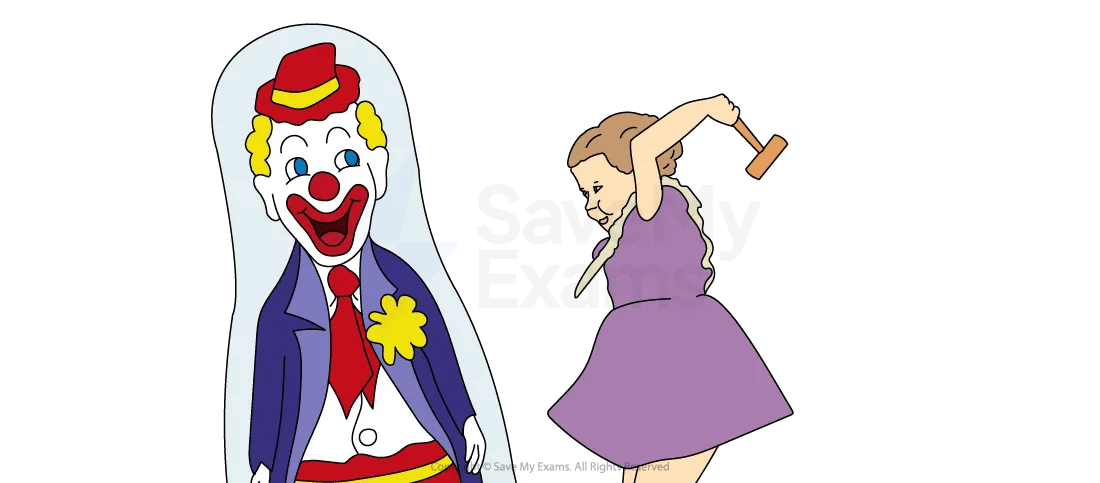SLT & aggression
- Social learning theory (SLT) is based on the idea that human beings learn behaviours from others within social contexts
- The key ideas behind SLT involve the observation of role models which then leads to the imitation of role models’ behaviour depending on whether that behaviour is seen to be rewarded or not
- SLT uses the principles of operant conditioning to explain the ways in which social learning occurs e.g. Billy observes his dad shouting at the TV when watching football and so, over time, Billy begins to shout at the TV when his team are playing badly
- A behaviour is positively reinforced when it is rewarded, either directly or indirectly e.g. Billy feels good when he and his dad are shouting at the TV to show how useless their team is (direct reinforcement); Billy sees his brother being praised for tackling another player aggressively which makes Billy want to imitate this behaviour the next time he plays football (indirect /vicarious reinforcement)
- Vicarious reinforcement may encourage a child to think that aggression is a positive behaviour as it leads to someone getting what they want e.g. Cassie often observes her older sister threatening younger children: the children are scared of Cassie’s sister so they always do what she demands e.g. handing over their pocket money
- Bandura’s (1961) famous - and controversial - Bobo Doll study highlights the ease with which young children appear to observe and imitate aggressive behaviour learned from adult role models
Exam Tip
You should definitely mention Bandura’s study as cited in the above bullet point in any exam question that asks you to outline, describe or explain SLT as the study is so well-known and was ground-breaking at the time of its publication. You can also use this study for an AO3 response as it can be used to BOTH support the SLT explanation of aggression and also to challenge it (e.g. a dated study; lab conditions hence lack of ecological validity; ethical problems with the procedure).

The Bobo doll study showed that even the least-likely people are capable of extreme aggression.


